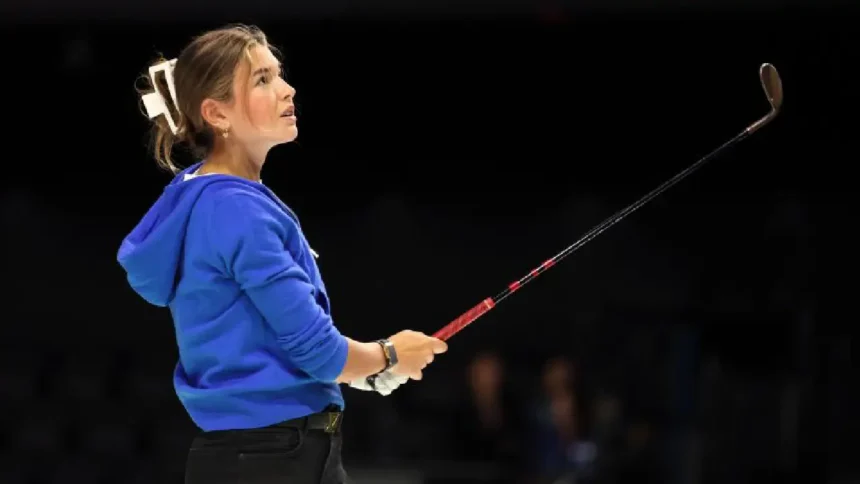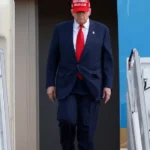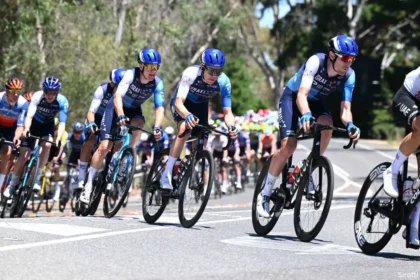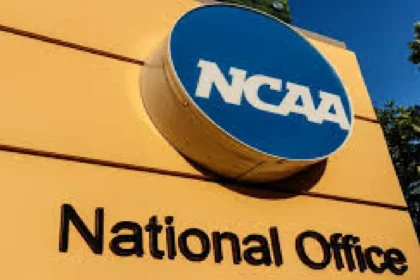When the LPGA announced that Kai Trump — granddaughter of former President Donald Trump — had been granted a sponsor’s exemption to play in an upcoming professional tournament, the golf world erupted. The exemption, a rare opportunity that allows a non-tour player to compete against the best female golfers in the world, immediately became one of the most talked-about stories in sports and politics alike.
Kai Trump, 18, has emerged as one of the most promising young amateur golfers in the United States. She has shown steady improvement in junior tournaments and has expressed ambitions of joining the LPGA full-time after college. But the controversy is less about her swing and more about her surname — a reminder that in American sports, politics and privilege can rarely be separated.
A Spotlight on the Trump Legacy
The Trump family’s ties to golf run deep. Former President Donald Trump owns and operates several world-class golf courses across the United States, Scotland, and Ireland. He has long been a vocal supporter of the sport, hosting both professional and amateur events at his properties. Kai, his eldest granddaughter, has reportedly trained extensively at Trump National Golf Club in Bedminster, New Jersey, and has represented her high school in state-level competitions.
The LPGA’s decision to extend her an exemption was, according to officials, based on “her demonstrated skill, potential, and growing fan following.” Still, critics argue that the Trump name likely played an outsized role. Social media platforms quickly filled with divided opinions — some praising Kai for her talent, others condemning the move as an example of systemic favoritism.
One prominent sports commentator called the exemption “a dangerous blend of politics and privilege,” while another noted that the LPGA “has historically offered sponsor invites to promising amateurs — but never under this much scrutiny.”
Merit vs. Marketing
The LPGA, like most professional tours, allows sponsors to invite a limited number of players who might draw audience interest or boost viewership. Historically, these exemptions have gone to local amateurs, international prospects, or celebrities with golf credibility. The intent is to create buzz — and, ideally, broaden the appeal of the event.
Yet this time, the buzz feels combustible. The involvement of a Trump family member has turned a sports marketing decision into a cultural flashpoint.
Defenders argue that Kai Trump has earned her place on merit. According to national junior rankings, she has finished in the top 25 in several high-level amateur tournaments, showing composure and skill that justify her selection. “Kai’s swing and course management are beyond her years,” said one LPGA analyst. “If her name weren’t Trump, this wouldn’t even be a controversy.”
But opponents disagree, pointing to the optics and timing. The exemption comes as Donald Trump continues to influence Republican politics ahead of the 2028 election, and critics say the appearance of favoritism could damage the LPGA’s image of inclusivity and fairness.
Politics in the Gallery
It is not the first time golf has found itself in the political crossfire. During Trump’s presidency, his properties were dropped from hosting several major tournaments amid public pressure. Now, the family’s return to golf headlines has reignited the familiar debate: Can the sport separate itself from political identity?
The LPGA has issued no further statements, but several officials speaking anonymously expressed frustration that a standard sponsor exemption has turned into a national talking point. “The reality is, every decision that touches the Trump name will be politicized,” said one tournament official. “That’s just where we are in 2025.”
Golf fans attending the upcoming event are expected to see heightened media coverage, security, and possibly even protests. Supporters of the Trump family have already announced plans to attend in large numbers, framing Kai’s participation as “the next generation of American golf excellence.” Meanwhile, critics argue that the exemption undermines opportunities for other rising players who lack powerful family ties.
The Trump Effect on Sports and Image
President Donald Trump has always embraced his family’s visibility in sports. From hosting boxing matches to promoting golf championships, he has used athletic platforms as symbols of prestige and power. Kai’s presence on the LPGA stage continues that legacy — intentionally or not.
For Trump supporters, it’s another example of the family’s resilience and success across generations. For detractors, it’s proof that influence, not performance, often determines opportunity.
As the story continues to unfold, the LPGA faces a difficult balancing act. If Kai performs well, it could validate her selection and silence critics. But if she struggles, the controversy could deepen, reinforcing claims that the invitation was a political favor rather than a sporting decision.
Either way, her debut will likely draw one of the largest television audiences for a women’s golf event this year — and that, say insiders, may have been the real goal all along.
What This Means for the LPGA’s Future
The LPGA has made significant strides in recent years toward expanding global reach, corporate sponsorships, and gender equality in sports. But this controversy underscores the delicate line between promoting talent and managing perception.
“Kai Trump represents both the promise and the peril of modern sports branding,” said a former LPGA executive. “She’s talented, poised, and marketable — but her name comes with unavoidable baggage. How the league handles this moment will shape its credibility for years.”
The first tee shot may belong to Kai Trump, but the reverberations will echo across both golf and politics — two worlds that, at least for now, remain inextricably linked through one powerful American family.











